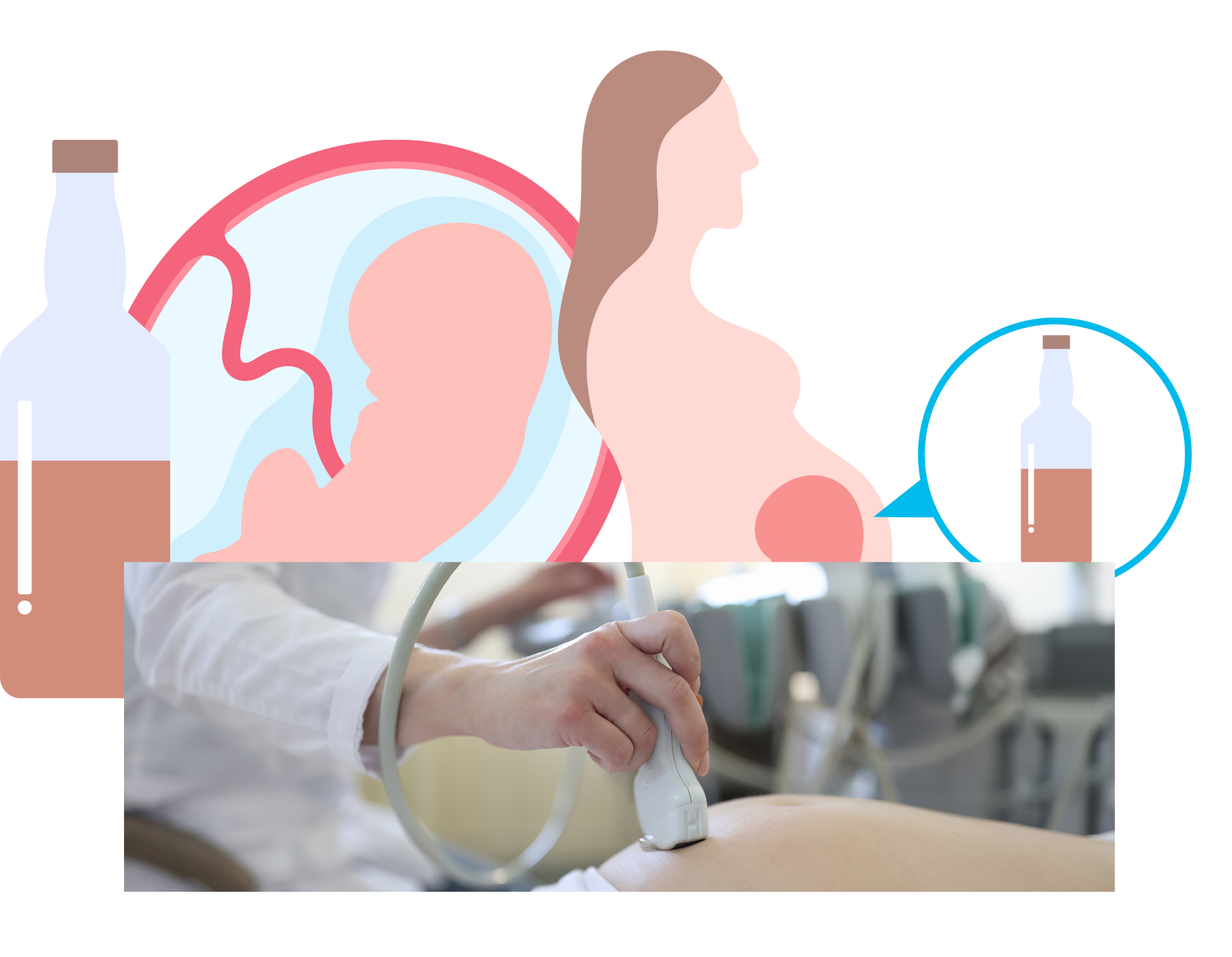Fetal Alcohol Syndrome

Fetal Alcohol Syndrome (FAS) is a severe and preventable condition that affects many children worldwide. In this article, we will address common questions about FAS, its causes, symptoms, diagnosis, treatment, and prevention strategies.
What is Fetal Alcohol Syndrome?
Fetal Alcohol Syndrome (FAS) is a congenital disorder caused by exposure to alcohol during pregnancy. It is characterized by a range of physical, cognitive, and behavioral abnormalities that can have lifelong consequences for the affected individual.
Who’s at risk for Fetal Alcohol Syndrome?
The primary risk factor for FAS is alcohol consumption during pregnancy. Any woman who consumes alcohol while pregnant, regardless of the amount, places her unborn child at risk of developing FAS. No amount of alcohol is considered safe during pregnancy.
What causes Fetal Alcohol Syndrome?
FAS is caused by the teratogenic effects of alcohol on the developing fetus. When a pregnant woman consumes alcohol, it crosses the placenta and reaches the fetus, causing damage to the developing brain and other organs.
How does Fetal Alcohol Syndrome start?
FAS starts with exposure to alcohol during pregnancy, particularly during the first trimester when the fetus's organs and systems are developing rapidly. However, alcohol exposure at any point during pregnancy can lead to FAS or other alcohol-related birth defects.
What are the symptoms of Fetal Alcohol Syndrome?
The symptoms of FAS can vary widely but often include:
- Distinctive facial features, such as small eyes, thin upper lip, and a smooth philtrum (the groove between the nose and upper lip)
- Growth problems, including low birth weight and ongoing growth deficiencies
- Central nervous system abnormalities, including developmental delays, intellectual disabilities, and behavioral issues
- Poor coordination and motor skills
- Learning difficulties and problems with attention, memory, and problem-solving
How is Fetal Alcohol Syndrome diagnosed?
FAS is diagnosed based on a combination of factors, including prenatal alcohol exposure, characteristic facial features, growth problems, and central nervous system abnormalities. A thorough medical evaluation, including a physical examination and developmental assessment, is required to make a diagnosis.
How can Fetal Alcohol Syndrome be treated?
There is no cure for FAS, but early intervention and treatment can improve outcomes for affected individuals. Treatment may include:
- Special education services to address learning and developmental needs
- Speech, occupational, and physical therapy to improve motor skills and coordination
- Behavioral therapy to address social and emotional challenges
- Medical care to manage co-occurring health issues
What complications may occur with Fetal Alcohol Syndrome?
Individuals with FAS may experience a range of complications throughout their lives, including:
- Difficulty in school and problems with employment
- Mental health issues, such as depression, anxiety, and substance abuse
- Legal issues and involvement with the criminal justice system
- Challenges with independent living and maintaining relationships
How can I prevent Fetal Alcohol Syndrome?
The most effective way to prevent FAS is to abstain from alcohol consumption during pregnancy. Women who are planning to become pregnant or who are already pregnant should avoid alcohol entirely. If you are struggling with alcohol use during pregnancy, seek help from a healthcare provider or support group.
Long-term management of Fetal Alcohol Syndrome
Long-term management of FAS involves ongoing medical care, therapy, and educational support tailored to the individual's needs. Family support and education are crucial in helping affected individuals reach their full potential and lead fulfilling lives.
What is recent research saying about Fetal Alcohol Syndrome?
Recent research on FAS has focused on improving early diagnosis, intervention, and treatment strategies. Studies have also investigated the biological mechanisms underlying alcohol-induced birth defects to better understand the condition and develop potential therapies. Some research has explored the role of genetic factors in determining the severity of FAS and identifying individuals who may be more susceptible to alcohol's teratogenic effects. Additionally, efforts have been made to raise public awareness about the dangers of alcohol consumption during pregnancy and promote prevention strategies.
Where can I go for more information on Fetal Alcohol Syndrome?
If you are looking for more information on Fetal Alcohol Syndrome or need support, consider reaching out to your healthcare provider or a qualified medical professional. They can provide guidance based on your specific situation and answer any questions you may have. Reputable online resources such as the National Organization on Fetal Alcohol Syndrome (NOFAS), the Centers for Disease Control and Prevention (CDC), and the Substance Abuse and Mental Health Services Administration (SAMHSA) can also offer valuable information and support for those affected by FAS.

